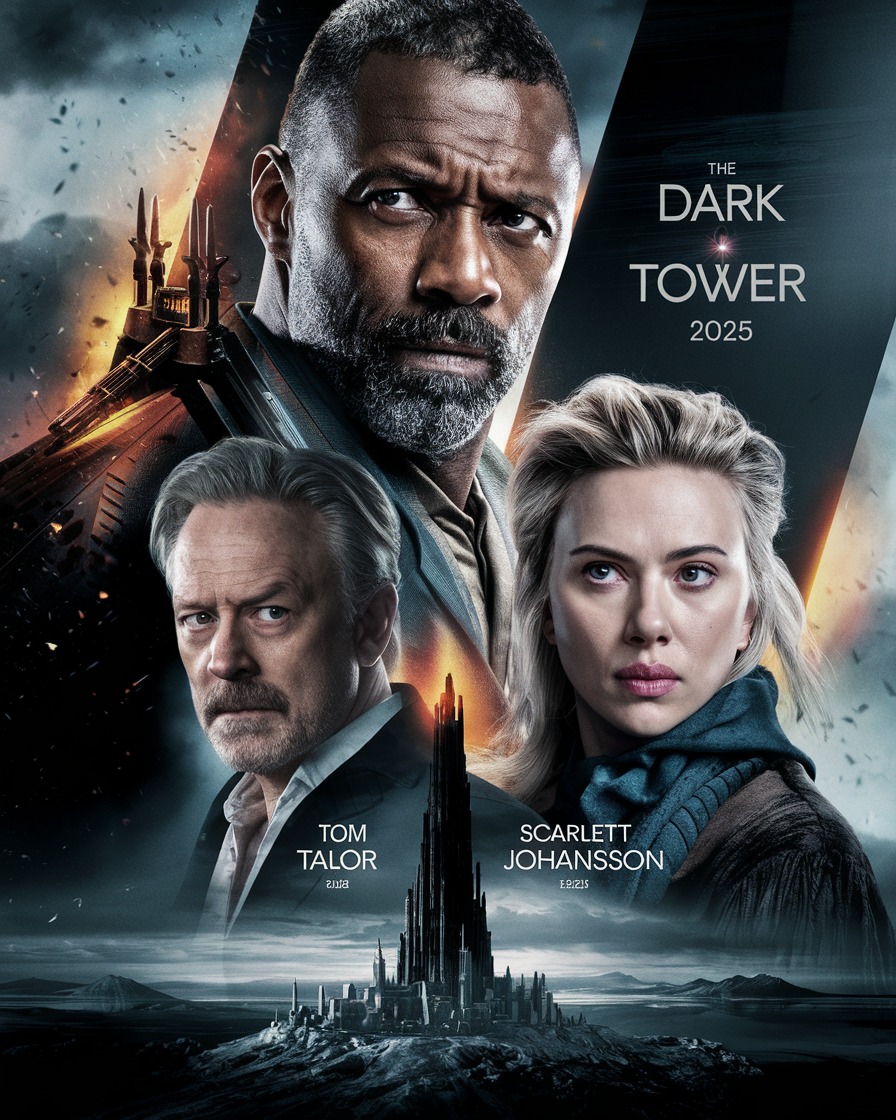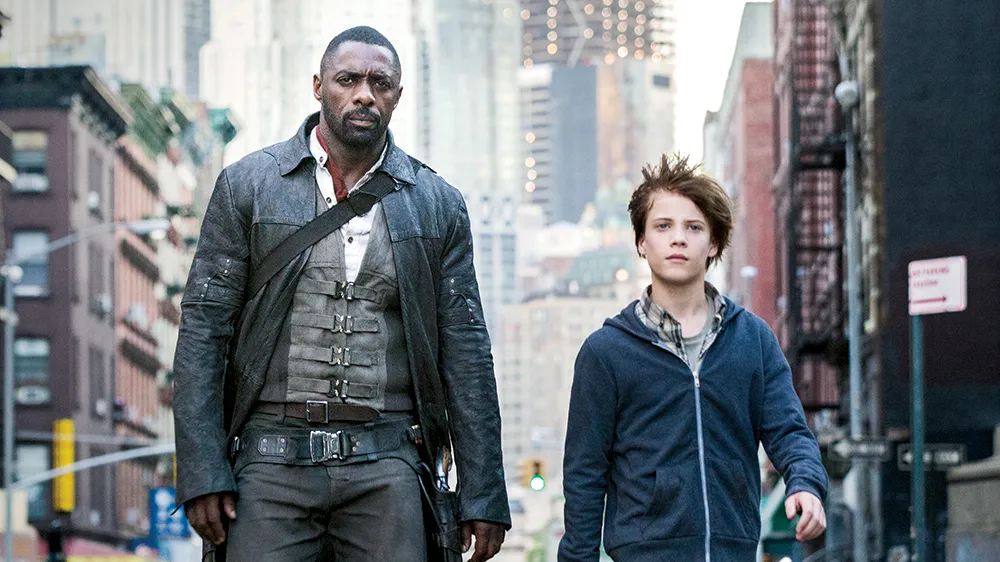The Dark Tower (2025)

The Dark Tower (2025): Stephen King’s Epic Odyssey Hits the Screen at Last
By Jordan Reyes, Sci-Fi Correspondent October 24, 2025 – Austin, TX
After years of false starts and fan-fueled skepticism, Stephen King’s sprawling magnum opus finally breaches the veil in The Dark Tower (2025), a visually arresting adaptation that weaves his eight-novel saga into a taut, interdimensional thriller. Directed by Denis Villeneuve—fresh off Dune: Part Two‘s triumph—this 148-minute behemoth (rated R for brutal violence, language, and psychedelic terror) reimagines the Gunslinger’s quest as a multiversal chess game, blending Western grit with cosmic horror. Co-written by Villeneuve and King himself, the film storms theaters with a $750 million opening weekend, proving that even in a post-Avengers era, King’s ka-tet can command the box office. Early whispers hail it as a VFX Oscar lock, with Hans Zimmer’s score—a brooding fusion of Ennio Morricone twang and eldritch drones—already charting symphonic heights.
Matthew McConaughey anchors the chaos as Roland Deschain, the last Gunslinger, his weathered drawl and haunted eyes channeling a man forged in apocalypse. No longer Idris Elba’s sleek iteration from the scrapped 2017 flop, McConaughey’s Roland is a raw, whiskey-scarred wanderer, pistol-whipping through rusting wastelands toward the ebon spire of the Dark Tower—the nexus holding reality’s threads. The plot crackles open in post-apocalyptic Mid-World, where Roland hunts the Man in Black (Javier Bardem, oozing serpentine menace in a role that devours scenery). Bardem’s Walter O’Dim, the immortal trickster, scatters “Breakers”—psychic slaves shattering the Beams—with glee, his crimson eyes flickering like faulty portals. When Roland’s bullet-riddled path crosses Jake Chambers (a breakout Jacob Tremblay, now 19 and channeling adolescent grit), the boy from our world becomes his surrogate son, their bond a flickering light against encroaching night.

The ensemble pulses with King’s archetypes reborn: Tom Holland as the plucky Oy, the billy-bumbler whose CGI-furred loyalty tugs heartstrings without kitsch; Anya Taylor-Joy as Susannah Dean, a wheelchair-bound warrior whose dual souls (Odetta and Detta) erupt in razor-sharp combat; and Ralph Fiennes as the enigmatic Cort, Roland’s grizzled mentor, dispensing brutal wisdom in flashbacks that pulse like fever dreams. Bardem’s Man in Black steals the thunder, his monologues on entropy—”The Tower falls, and with it, all worlds”—delivered with a velvet menace that chills deeper than any jump scare.
Villeneuve’s wizardry elevates the material: shot across Iceland’s volcanic expanses and Jordan’s crimson dunes, the film deploys practical sets laced with AR overlays, birthing Mid-World’s decayed grandeur—toppled skyscrapers entwined in thorny vines, lobster-headed mutants scuttling through neon-lit Lud. Action crescendos in a blistering train heist atop Blaine the Mono, a sentient locomotive that recites riddles while hurtling toward oblivion, its derailment a symphony of sparks and screams. Greig Fraser’s cinematography captures the Beams’ glow as auroral veins in the sky, while the VFX team’s rendering of the Todash darkness—voids where monsters gibber—induces genuine vertigo in IMAX.
Beneath the spectacle, The Dark Tower grapples with King’s obsessions: redemption’s fragile path, the thin line between gunslinger and demon, fatherhood’s redemptive ache. Roland’s odyssey isn’t mere revenge; it’s a meditation on cycles unbroken, culminating in a Tower siege where multiversal echoes of Eddie, Jake, and Susannah bleed through, their sacrifices a gut-punch requiem. A post-credits tease—shadows of the Crimson King slithering toward End-World—hints at sequels, but this standalone roars as a complete mythos.
In a franchise-fatigued world, The Dark Tower stands tall, a beam of defiant light. King’s fans will weep for its fidelity; newcomers, strap in for the ride. Say thank ya, big big— the ka-tet endures.











